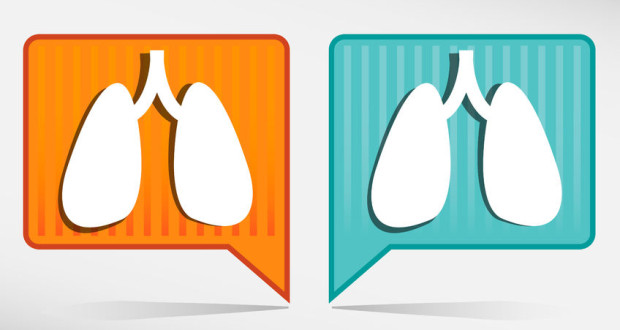Even decades after the advent of antibiotics, pneumonia still manages to sicken many people every year. Consider that in the year 2006 alone, this disease was responsible for 55,477 deaths. Since pneumonia is still a fairly common problem, you may be curious as to whether it is contagious in nature.
Attacking the Alveoli
Pneumonia is actually a sort of umbrella term, encompassing a wide range of different diseases. In fact, there are more than thirty causes for pneumonia, involving bacteria, viruses and even fungi. Regardless of what triggers it, the symptoms of pneumonia appear due to inflammation of the alveoli, or air sacs within the lungs. Alveoli play an essential role in the respiratory system, as they allow oxygen to enter the bloodstream while facilitating the exit of carbon dioxide from the body. In addition to becoming inflamed, pneumonia also causes fluid to accumulate inside the alveoli.
According to the American Lung Association, a person stricken with pneumonia will typically exhibit the following symptoms:
- Coughing, which may cause the patient to cough up green or yellow colored mucus
- Shaking chills
- Fever, which can vary in severity. Specifically, a person with pneumonia may develop a mild or high fever.
- Shortness of breath. Some patients only encounter this problem when ascending a stairway
Bacterial vs. Viral Pneumonia
Both bacterial and viral pneumonia can make the leap from victim to victim. The latter can spread thanks to sneezes and coughs, which propel virus-laden fluid droplets into the air. In turn, these droplets can get into the noses and mouths of unsuspecting persons. Likewise, surfaces like door knobs and keyboards can play host to the microbes that trigger the viral form of pneumonia. Of course, touching contaminated items gives viral pneumonia an excellent chance to get on your hands, from where it’s a pretty short trip to the mouth and nose. It bears mentioning that people who are infected with such viruses may not develop pneumonia, but could still develop other problems.
Bacterial pneumonia, in contrast, is not especially contagious, though it is still possible for it to jump to new targets. For example, Mycoplasma pneumoniae bacteria can spread to uninfected people fairly easily. In fact, some experts contend that this type of bacteria causes anywhere from 1 in 50 to 1 in 10 cases of community-acquired pneumonia, or pneumonia that is contracted outside of a hospital environment.
However, M. pneumoniae is not the most common culprit behind bacterial pneumonia. That honor goes to Streptococcus pneumoniae, which can be transmitted via sneeze and cough droplets. Fortunately, S. pneumoniae bacteria are not especially contagious, as the body’s defenses are usually able to eliminate these invaders before they can cause trouble.
Differing Symptoms and Possible Risk Factors
Pneumonia symptoms can vary based on whether the disease is caused by bacteria or a virus. A case of bacterial pneumonia might involve accelerated breathing, heavy sweating and fever reaching up to 105 degrees. Conversely, people struggling with viral pneumonia may develop a dry cough, muscular pain, headache and feelings of weakness. In addition, pneumonia-causing viruses might also induce high fever and a mucus-producing cough, and the patients’ lips could even take on a bluish tinge.
As with many other diseases, certain factors can increase a person’s odds of coming down with pneumonia:
Chronic Diseases – Those living with asthma, chronic obstructive pulmonary disease and heart disease tend to be more susceptible to pneumonia infection.
Diminished Immune System – The body’s defense network can be weakened by HIV/AIDS, organ transplants, chemotherapy or prolonged steroid use, giving pneumonia a better chance to wreak havoc with the respiratory system.
Smoking – As if you needed another reason to avoid (or quit) smoking, this deadly habit leaves people more vulnerable to both viral and bacterial pneumonia.
Alcohol Consumption – Like smoking, excessive drinking is clearly a bad lifestyle choice. In addition to damaging the liver, heavy consumption of alcohol can make pneumonia a bigger threat to your personal health.
Age – Pneumonia tends to be more of an issue for those under the age of one or over sixty-five.
 Natural Knowledge 24/7 Educate yourself with nutrition, health and fitness knowledge.
Natural Knowledge 24/7 Educate yourself with nutrition, health and fitness knowledge.






